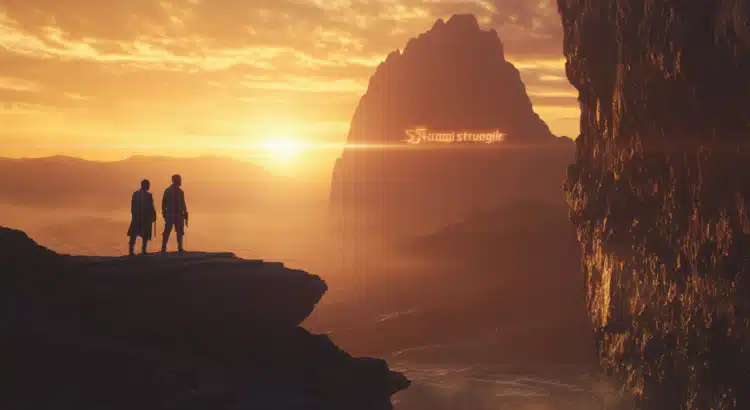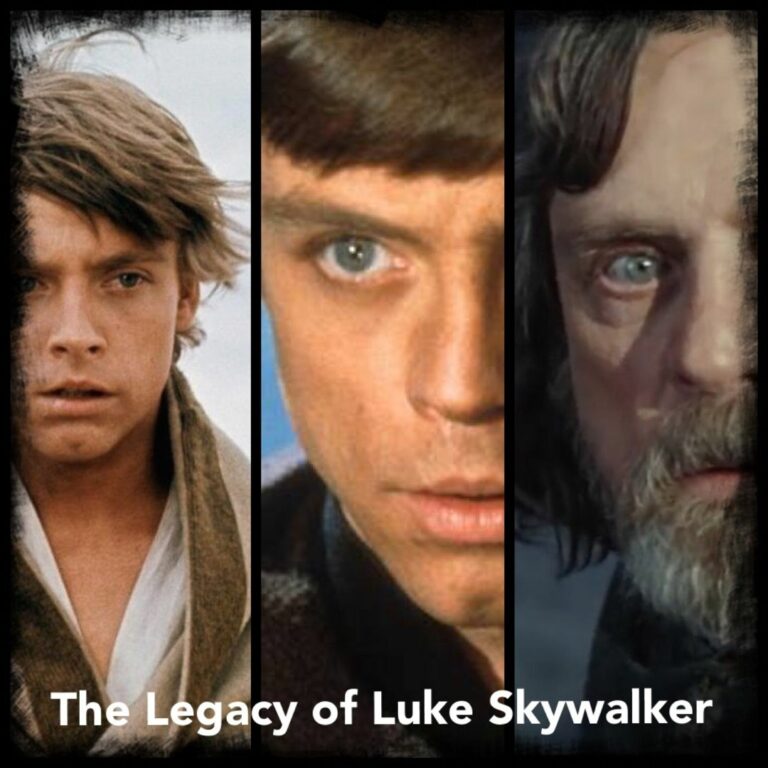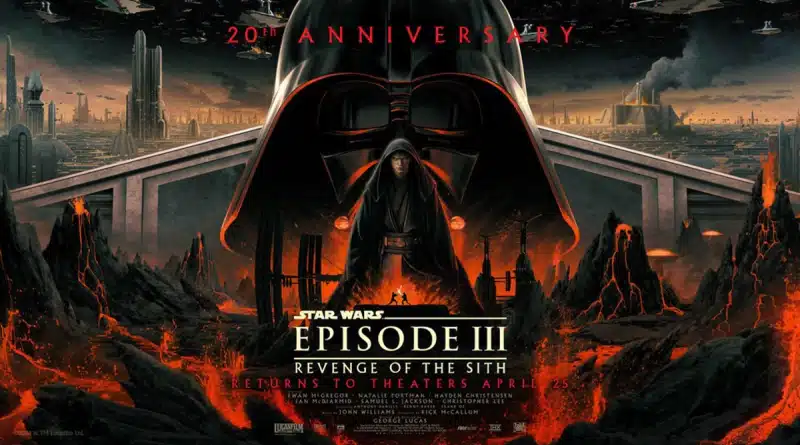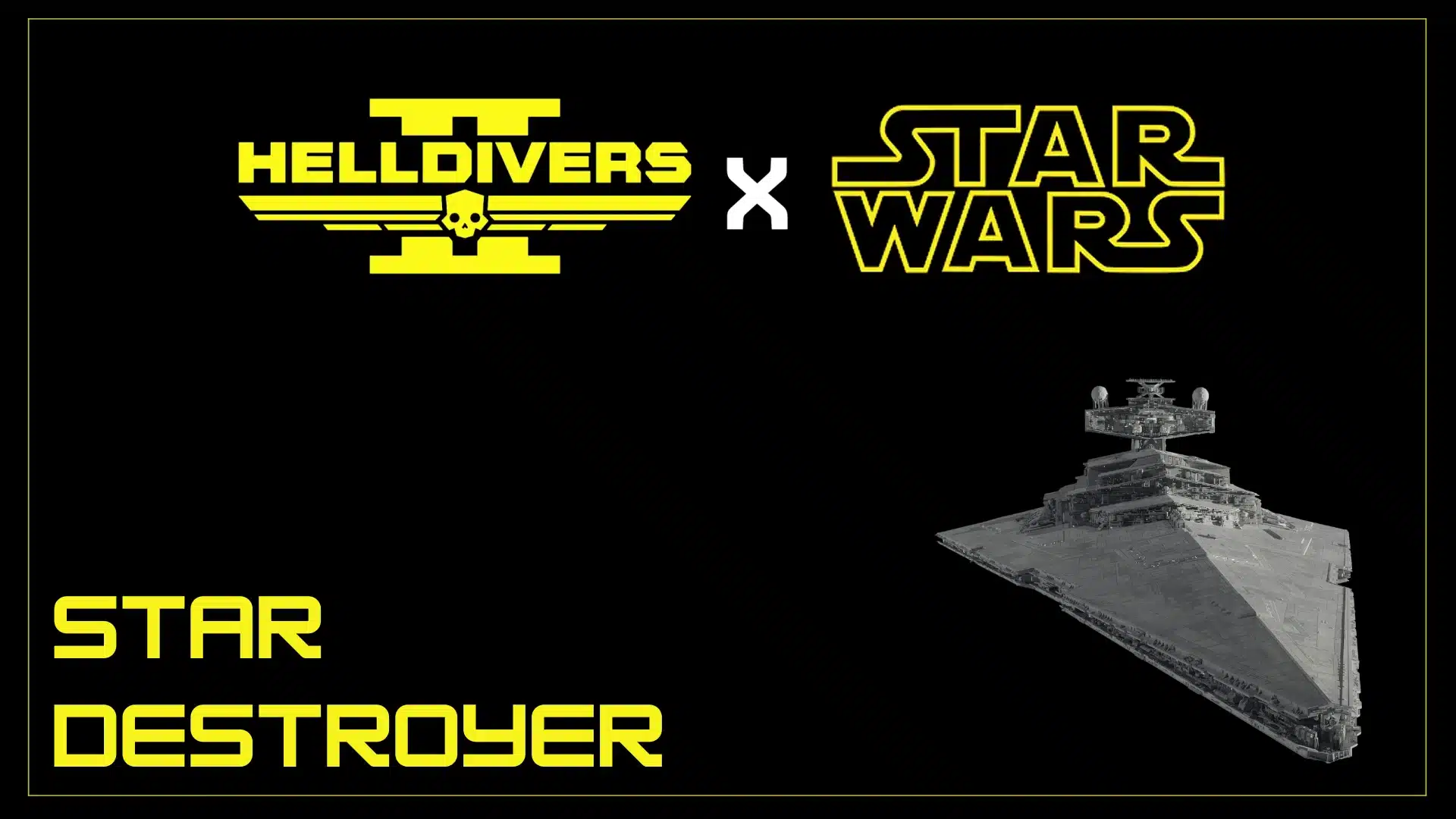The Star Wars universe has always been more than just space battles, lightsaber duels, and snappy droid one-liners. Underneath the epic storytelling lies a powerful narrative about rebellion, sacrifice, and the never-ending struggle against tyranny. And if that sounds familiar, it’s because it mirrors concepts found throughout human history—including the Islamic idea of jihad.
Now, before jumping to hyperspace conclusions, jihad doesn’t mean “holy war” (no, it’s not that dramatic). In its truest form, it’s about striving—for justice, for moral discipline, and for resisting oppression. Which, strangely enough, makes the Rebel Alliance one of the most unexpectedly relatable case studies for this timeless concept.
Let’s take a closer look at the parallels—lightspeed not required.

The Rebel Alliance and the Spirit of Resistance
IThe Rebel Alliance didn’t start as a galactic powerhouse. It wasn’t born in palaces or boardrooms but in whispered meetings, stolen transmissions, and desperate hope. It was messy, fragmented, and—for a while—comically underfunded. But it had one thing the Empire didn’t: moral clarity.
At its core, the Rebellion was a coalition of diverse individuals and planets united by one common cause—resisting oppression and restoring justice. That theme hits close to home when looking through the lens of Islamic teachings on resistance. In fact, the Quran encourages standing up to injustice even when the odds seem insurmountable.
“O you who have believed, be persistently standing firm in justice, witnesses for Allah, even if it be against yourselves or parents and relatives.”
— Surah An-Nisa (4:135)
Sound familiar? That’s pretty much Bail Organa’s whole vibe in Andor. The people who formed the backbone of the Rebellion weren’t saints or superheroes. They were senators, smugglers, farmers, spies, and ex-stormtroopers who realized they couldn’t stay silent while others suffered.
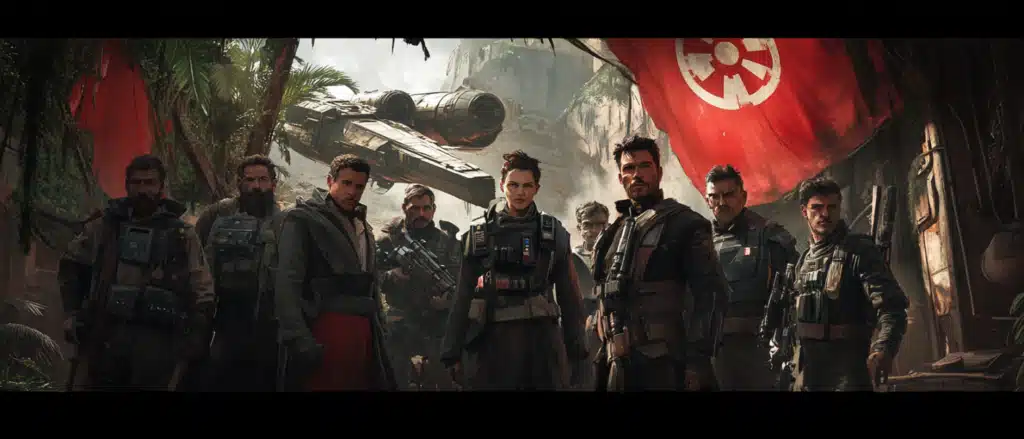
A Rebellion Fueled by Diversity and Shared Values
One of the most underrated aspects of the Rebellion—and also one of the most relatable—is its diversity. Wookiees, Twi’leks, Mon Calamari, droids, and humans all fighting under one banner. They didn’t share the same backgrounds, languages, or even planets, but they shared a fundamental belief: Tyranny must be challenged, no matter the cost.
In Islamic ethics, this idea of uniting against oppression is emphasized time and again. Struggling together to uphold justice (adl) is not only a civic duty but a spiritual one.
“Help one another in righteousness and piety, and do not help one another in sin and transgression.”
— Surah Al-Ma’idah (5:2)
Leia Organa didn’t have time to consult theology, but her actions mirrored that verse. She helped build a movement where people looked beyond personal differences and chose to act in defense of the voiceless.
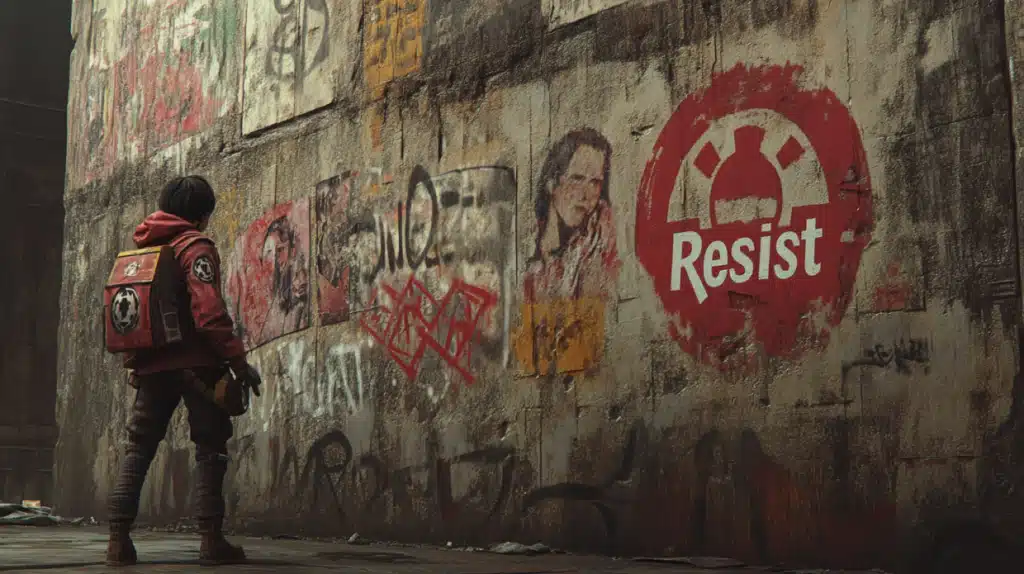
From Peace to Rebellion: When Dialogue Fails
What’s interesting about many key Rebel leaders is that they didn’t want war. Mon Mothma tried diplomacy. Bail Organa stayed in the Senate. Even Leia initially hoped to operate through political channels. But the Empire, like many real-world oppressors, closed every door that didn’t involve submission.
This shift from peaceful resistance to active rebellion mirrors a principle in Islamic jurisprudence: struggle is warranted when peaceful options are exhausted and injustice becomes unbearable. The Quran warns against turning a blind eye while others suffer, emphasizing that silence can be complicity.
“Indeed, those whom the angels take [in death] while wronging themselves – [the angels] will say, ‘In what condition were you?’ They will say, ‘We were oppressed in the land.’ The angels will say, ‘Was not the earth of Allah spacious [enough] for you to emigrate therein?’”
— Surah An-Nisa (4:97)
For the Rebels, fleeing wasn’t an option. The galaxy was big, but the Empire was everywhere. So they chose the harder path: fighting back.
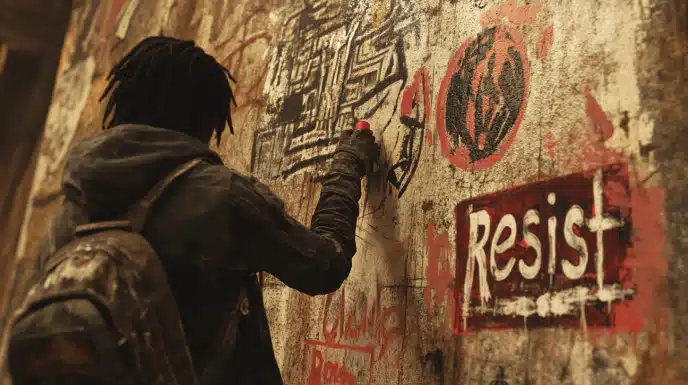
The Moral Legitimacy of the Rebellion
From a narrative standpoint, Star Wars does a brilliant job of making the moral stakes crystal clear. The Empire isn’t a gray area—it’s an authoritarian regime that weaponizes fear, erases freedom, and crushes dissent with alarming efficiency.
In contrast, the Rebel Alliance grounds its legitimacy not in power, but in ethical resistance. That’s a key point also reflected in Islamic tradition: struggle (jihad) must be rooted in justice, not vengeance or chaos.
The Rebellion’s cause wasn’t fueled by hatred of the Empire—it was fueled by love. Love for freedom, for life, for the dignity of all beings. That’s what made their struggle not just necessary, but noble.
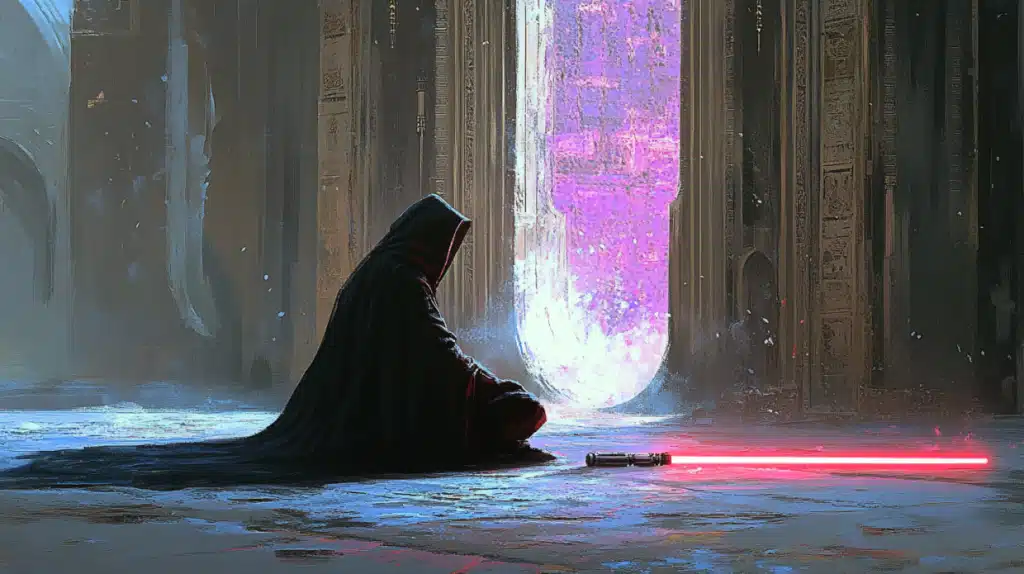
Jihad as a Dual Struggle: External and Internal
In most action-heavy stories, the battles are out there—ships exploding, lightsabers clashing, stormtroopers missing every shot. But Star Wars, at its best, reminds us that some of the most important battles happen within. And that’s exactly where the Islamic concept of jihad hits home.
Now, let’s clear something up: “jihad” literally means “struggle” or “striving.” That’s it. Not war. Not violence. Just struggle. It’s a broad, nuanced concept, and Islamic scholars have long emphasized that jihad isn’t just about fighting external enemies—it’s equally (if not more) about the internal fight.
Sound familiar? Because Luke Skywalker could probably give a TED Talk on this.
The External Jihad: Resisting Injustice in the Real World (or Galaxy)
The external form of jihad refers to the effort to confront injustice, stand against oppression, and defend what’s right—ideals that practically define the Rebel Alliance. Think about it: ragtag freedom fighters risking everything to take down a government that vaporizes entire planets? That’s textbook resistance.
From an Islamic perspective, taking a stand against tyranny is not just encouraged—it’s a moral responsibility. The Prophet Muhammad (peace be upon him) is reported to have said:
“The best form of jihad is to speak a word of truth in front of a tyrant ruler.”
— (Hadith, Sunan Abu Dawood)
You don’t need a blaster or an X-wing to do that. Sometimes, the most powerful act of resistance is refusing to stay silent. That’s exactly what the Rebellion did. Whether it was through stolen Death Star plans or fiery speeches in the Senate, their jihad was clear: dismantle systemic evil and restore justice to the galaxy.
This is where the synergy between the Quranic worldview and the Star Wars universe really starts to shine. Both emphasize action rooted in principle—not power for power’s sake, but resistance grounded in a higher moral cause.
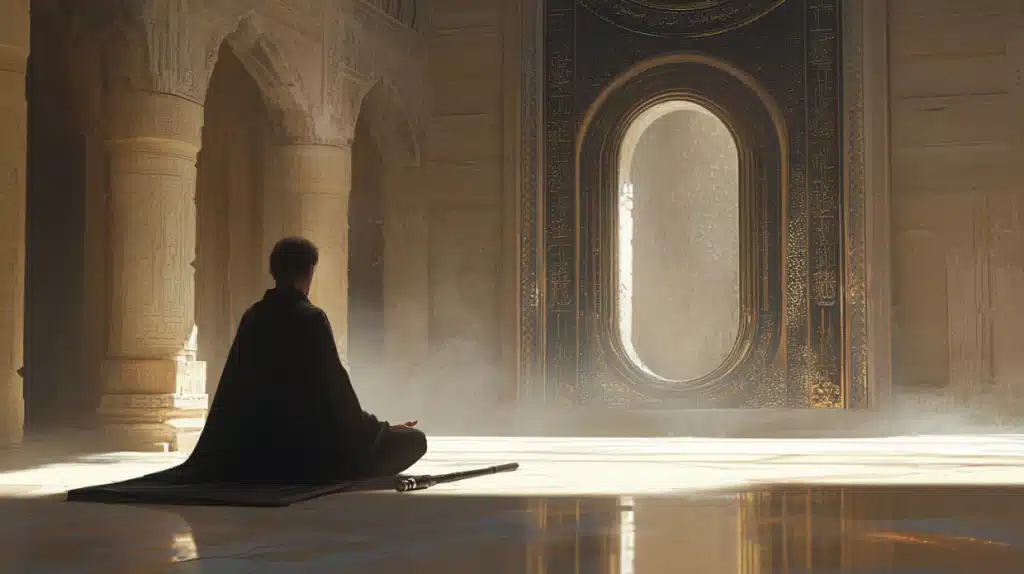
The Internal Jihad: Conquering the Dark Side Within
Of course, not all battles involve explosions. Sometimes the harder fight is the one happening inside your head. In Islamic teachings, this internal struggle—known as jihad al-nafs—is about resisting your own negative impulses: arrogance, selfishness, fear, envy, laziness, anger. You know, the stuff that gets Anakin Skywalker into serious trouble.
Let’s be honest: Darth Vader wasn’t built in a day. His downfall was gradual—a mix of unchecked ego, attachment, and fear of loss. His inability to master his internal jihad eventually made him a pawn of the Emperor. On the flip side, Luke’s entire journey is one long, slow-motion inner battle to resist those same temptations.
His turning point? Choosing not to kill his father in rage. He throws away his lightsaber and says, “I am a Jedi, like my father before me.” That’s not just cinematic—it’s deeply spiritual.
“Indeed, the soul is a persistent enjoiner of evil, except those upon whom my Lord has mercy.”
— Surah Yusuf (12:53)
Mastering the self is harder than mastering the Force. It’s quieter, more personal, and definitely less glamorous. But in both Islamic thought and the Star Wars mythos, it’s the path to true freedom.
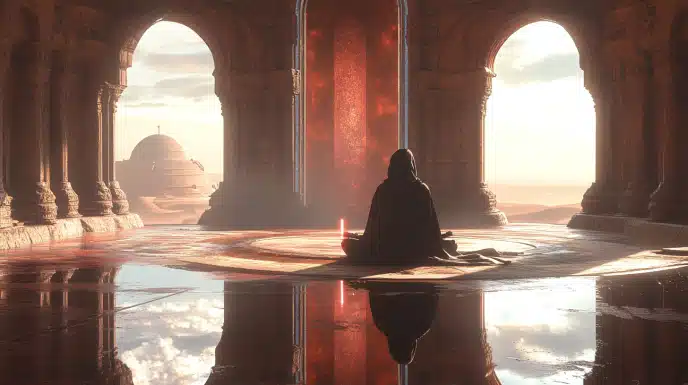
Why Both Struggles Matter—Together
Here’s the real secret: external and internal struggles feed into each other. You can’t change the world if you haven’t done the work to change yourself. And fixing yourself doesn’t mean much if you ignore the suffering around you.
The Rebel leaders got that balance right. Mon Mothma, Leia, Cassian, and even Han Solo (eventually) understood that you fight the Empire outside while constantly checking your motives inside. Are you doing it for justice—or revenge? For freedom—or ego?
In Islamic ethics, that balance is key. You can’t claim righteousness while ignoring your own flaws. And you can’t grow spiritually if you’re indifferent to the injustice around you. Both struggles are jihad, and both are essential to living a meaningful, ethical life—whether you’re a Jedi or just someone trying to get through Monday without losing it.

The Empire as a Symbol of Tyranny
Let’s not sugarcoat it: the Galactic Empire is the worst HOA in the galaxy. Think authoritarianism with better uniforms and bigger lasers. Their mission? Total control. Freedom of thought? Nope. Freedom of movement? Forget it. Freedom to not get blown up by a space station? Also a hard no.
From the very beginning, the Empire is positioned as the embodiment of tyranny—a regime that values obedience over justice, fear over freedom, and order over morality. And in the Star Wars universe, that tyranny isn’t just evil for the sake of drama. It’s meant to reflect very real-world forms of systemic oppression.
In Islamic thought, this kind of unchecked power is called zulm—injustice, wrongdoing, or tyranny. And it’s one of the gravest wrongs a person (or intergalactic dictatorship) can commit.
“Indeed, Allah does not like the wrongdoers.”
— Surah Al-Imran (3:57)
Not exactly an endorsement of Death Star diplomacy.
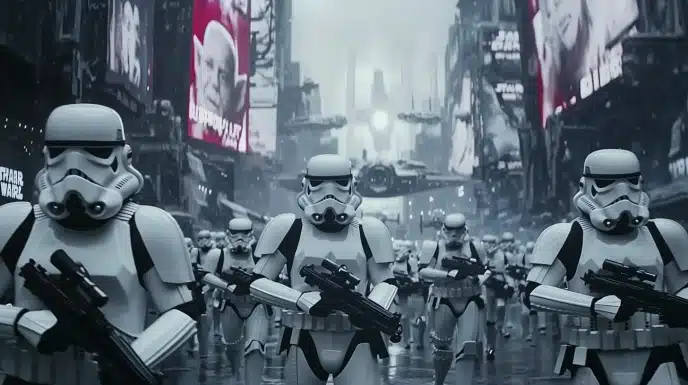
The Anatomy of Galactic Oppression
So how does the Empire maintain its grip on the galaxy? Through fear, manipulation, propaganda, and enough bureaucracy to crush any spark of rebellion. Citizens are told the Empire keeps the peace, but what it really does is weaponize control.
Palpatine doesn’t just rule through military force—he erodes institutions, rewrites truth, and systematically eliminates dissent. Sound eerily familiar? That’s because the tools of tyranny haven’t changed much since ancient history… or since the last Imperial Senate meeting.
The Quran repeatedly condemns this kind of corrupt rule, calling out unjust leaders who exploit the weak for personal gain:
“And do not incline toward those who do wrong, lest the Fire touch you…”
— Surah Hud (11:113)
That’s a pretty strong warning, and it’s one that resonates deeply when watching how people in the galaxy are forced to choose between complicity and resistance.
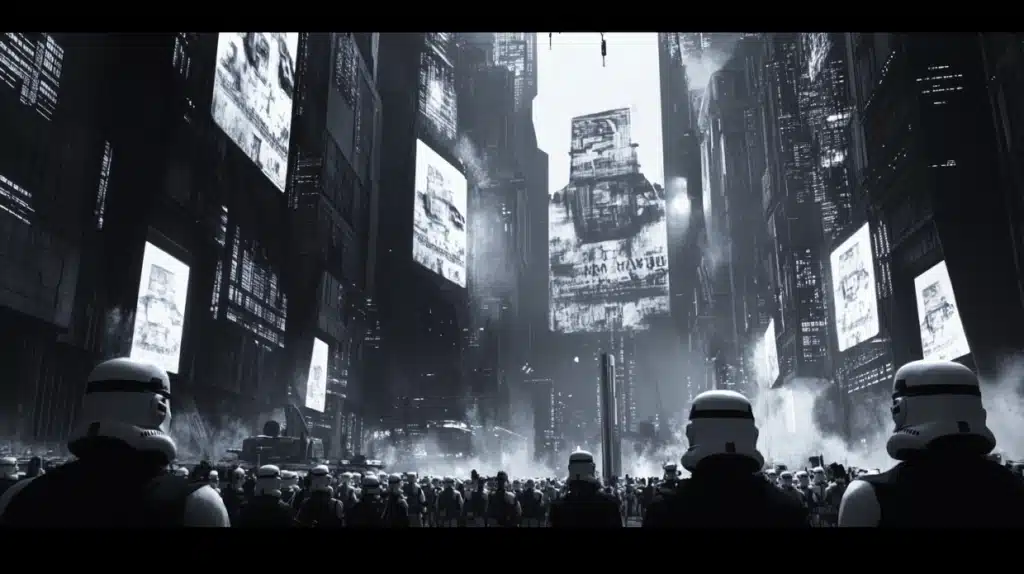
The Cost of Silence in the Face of Oppression
Not everyone under the Empire wears black armor and force-chokes subordinates. Many are just regular people—soldiers, workers, citizens—trying to survive. But Islamic teachings emphasize that silence in the face of injustice is dangerous, too.
There’s a powerful concept in Islamic ethics: if you see something wrong, you should try to change it. If you can’t change it physically, speak out. If you can’t even do that, then at least hate it in your heart. But ignoring it altogether? Not an option.
“Whoever among you sees evil, let him change it with his hand; if he cannot, then with his tongue; if he cannot, then with his heart—and that is the weakest of faith.”
— (Hadith, Sahih Muslim)
In Star Wars, characters like Galen Erso (Rogue One) and even Finn (The Force Awakens) reflect this idea. They were once part of the system but chose to walk away from complicity—and ultimately risked everything to stand against it.
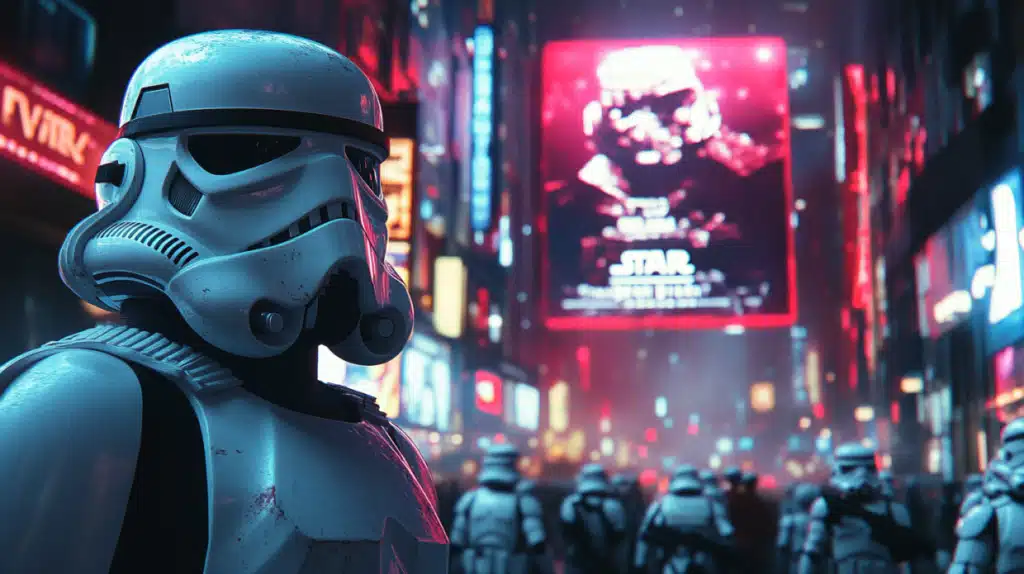
Why the Empire Must Be Resisted, Not Just Survived
Tyranny doesn’t go away on its own. Empires don’t collapse because people hope they will. Resistance—organized, committed, and morally grounded—is necessary. And that’s where the Islamic view on oppression lines up with the spirit of the Rebellion.
Justice (adl) isn’t a luxury; it’s a divine command. When systems are built on injustice, Muslims are taught not to accept them quietly but to actively work toward change—whether that’s through protest, education, or yes, even rebellion when all else fails.
The Rebellion in Star Wars is not portrayed as perfect, but it is righteous. It doesn’t seek power for revenge, but justice for the oppressed. That distinction is crucial—and deeply resonant with the Islamic understanding of legitimate resistance.o restore balance and justice—goals very much in line with Quranic principles on governance and fairness.

Patience, Perseverance, and Plot Armor
Let’s face it—if the Rebel Alliance had a slogan, it wouldn’t be “fast results guaranteed.” More like: “It’s going to take a while, and probably hurt a lot, but we’ll get there eventually.” And somehow, despite constant losses, betrayal, and the odd planetary annihilation, they never gave up.
This is where the Star Wars narrative intersects beautifully with an essential virtue in Islamic teachings: sabr, or patience and steadfastness. Not the passive, “sit quietly and do nothing” kind of patience—but the active, gritty, “hold the line even when it’s hard” kind. The type that gets you through years of hiding on ice planets and dodging TIE Fighters with duct-taped X-wings.
“O you who have believed, seek help through patience and prayer. Indeed, Allah is with the patient.”
— Surah Al-Baqarah (2:153)
If that verse had a lightsaber, it would be blue.

The Long Game of Rebellion
One of the most overlooked lessons in Star Wars is that success doesn’t come overnight. The original trilogy spans years of strategic planning, secret missions, and painstaking alliance-building. There’s no shortcut to defeating an empire—unless you count Ewoks, and even then, that took some clever planning.
This kind of long-haul perseverance mirrors the Islamic emphasis on enduring hardship without losing hope. The Quran consistently reminds believers that trials are a part of life and that victory often arrives after patience is tested.
“So be patient. Indeed, the promise of Allah is truth.”
— Surah Ar-Rum (30:60)
That’s basically what Mon Mothma had to tell herself every time a Rebel cell got wiped out or someone said, “We’ll never defeat the Empire.” Patience didn’t mean waiting passively—it meant continuing the fight, even when the odds were cosmic-level terrible.

Spiritual Endurance vs. Plot Armor
Let’s talk about plot armor for a second—you know, the magical force-field that protects main characters from dying in the first five minutes. (Looking at you, main trio.) In real life—and in Islamic teachings—there’s no plot armor. But there is something better: faith, and the inner strength that comes from it.
This spiritual resilience is the real power behind patience. It’s the belief that hardship isn’t meaningless, that persistence will be rewarded, and that justice is worth the sacrifice—even if you don’t live to see it.
Characters like Cassian Andor (Andor), Jyn Erso (Rogue One), and countless others didn’t survive to witness the Empire’s fall—but their actions made it possible. That’s the Islamic concept of sabr in action: continuing the struggle because it’s right, not because it’s easy—or guaranteed.

Endurance as a Strategic Weapon
In warfare, perseverance is often more effective than firepower. The Rebels didn’t match the Empire in ships, soldiers, or budget (they definitely didn’t have budget). But they had resolve. And that made them dangerous.
In Islam, patience isn’t just about survival—it’s a strategic weapon against injustice. When you remain firm in your values while your opponent relies on fear and brutality, you expose their weakness. You outlast them. You win—not just politically, but morally.
“And We will surely test you with something of fear and hunger and a loss of wealth and lives and fruits, but give good tidings to the patient.”
— Surah Al-Baqarah (2:155)
Good tidings, like… eventual galactic freedom and an Ewok dance party.
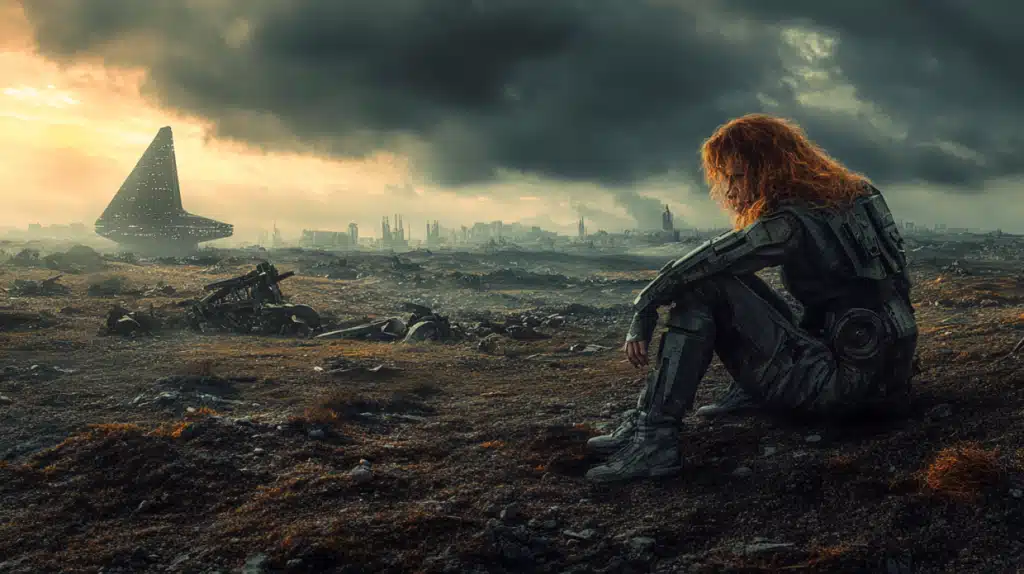
When Patience Meets Action
It’s important to note that in Islamic teachings, sabr is not passive resignation. It’s active perseverance. The Rebels didn’t sit around meditating in caves (okay, some did). They trained, organized, recruited, and sacrificed—all while enduring constant pressure. Their patience wasn’t stillness—it was stubborn momentum.
It’s the same kind of patience taught in the Quran: stay the course, don’t compromise your principles, and keep moving forward, even when progress feels microscopic.
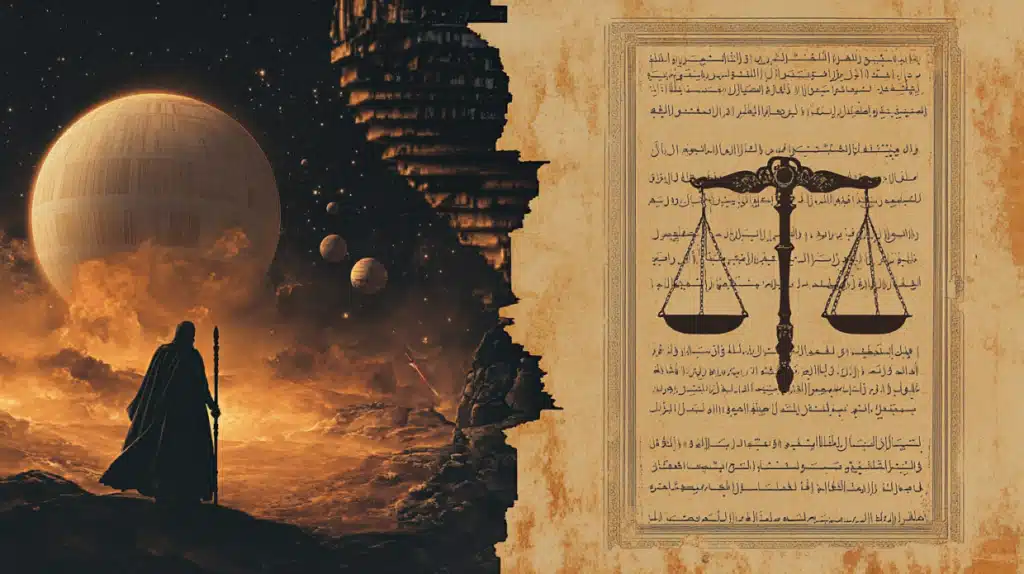
Why These Parallels Matter in Pop Culture
On the surface, Star Wars is all lightsabers, space wizards, and “pew pew” battles in zero gravity. But dig a little deeper and you’ll find something surprising: a story that echoes timeless human struggles—moral, political, and spiritual. These parallels between the Rebel Alliance and the Islamic concept of jihad aren’t a coincidence. They speak to universal truths embedded in great storytelling and ancient teachings alike.
And no, you don’t need to be a Jedi scholar or a theology major to appreciate that.
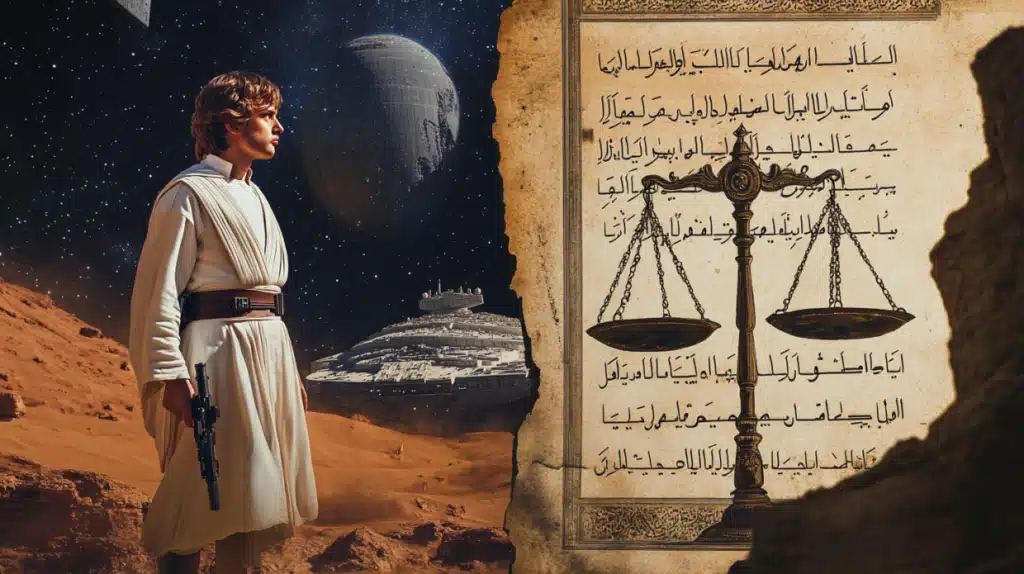
Stories Shape Values, Even in a Galaxy Far, Far Away
Whether through films, comics, or video games, Star Wars has become a modern myth. It’s how generations have learned about the battle between good and evil, the cost of resistance, and the strength it takes to stay true to your values when power demands submission.
That’s what makes it more than entertainment. It’s cultural storytelling with real-world echoes.
Islamic teachings on justice, patience, struggle, and moral integrity align closely with the core themes of Star Wars. The idea that standing up against injustice is not only heroic but required—even when the cost is high—is a message that resonates across time, continents, and fandoms.
“And establish weight in justice and do not make deficient the balance.”
— Surah Ar-Rahman (55:9)
In other words: balance, not just in the Force, but in society.
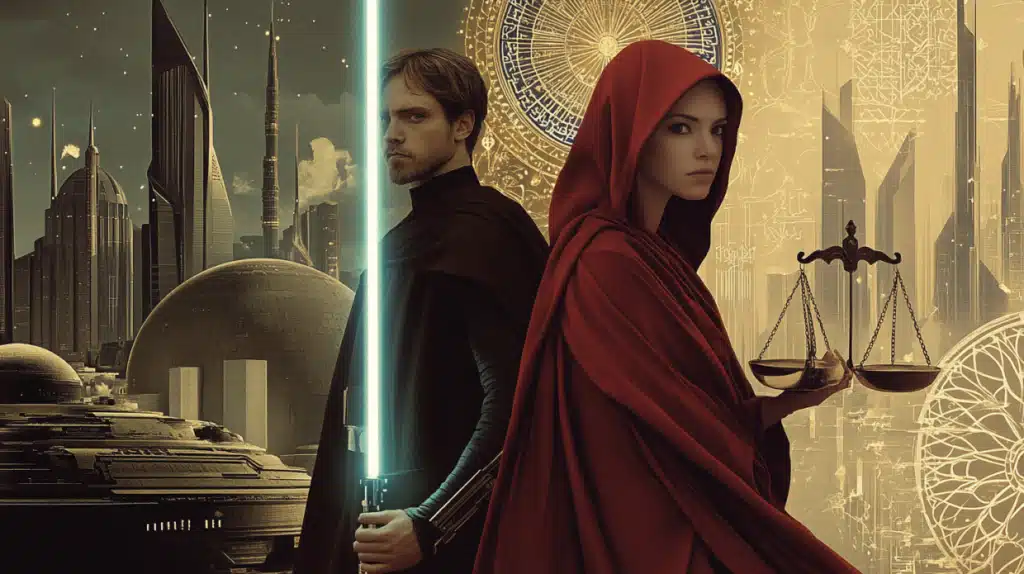
Pop Culture as a Lens for Deeper Understanding
Using Star Wars to explore jihad might seem unconventional, but that’s exactly why it works. Pop culture provides a shared language. It helps bridge gaps in understanding. By comparing fictional resistance movements to spiritual teachings, we humanize concepts that are often misunderstood, politicized, or oversimplified.
This isn’t about forcing ideology into fiction—it’s about recognizing that stories and scripture often deal with the same fundamental questions:
- How do you respond to injustice?
- What does true courage look like?
- Where does strength really come from?
If Luke’s temptation mirrors the internal jihad, and the Rebellion reflects the external jihad, then suddenly these aren’t abstract religious ideas anymore. They’re tangible, relatable, and—dare we say—cinematic.
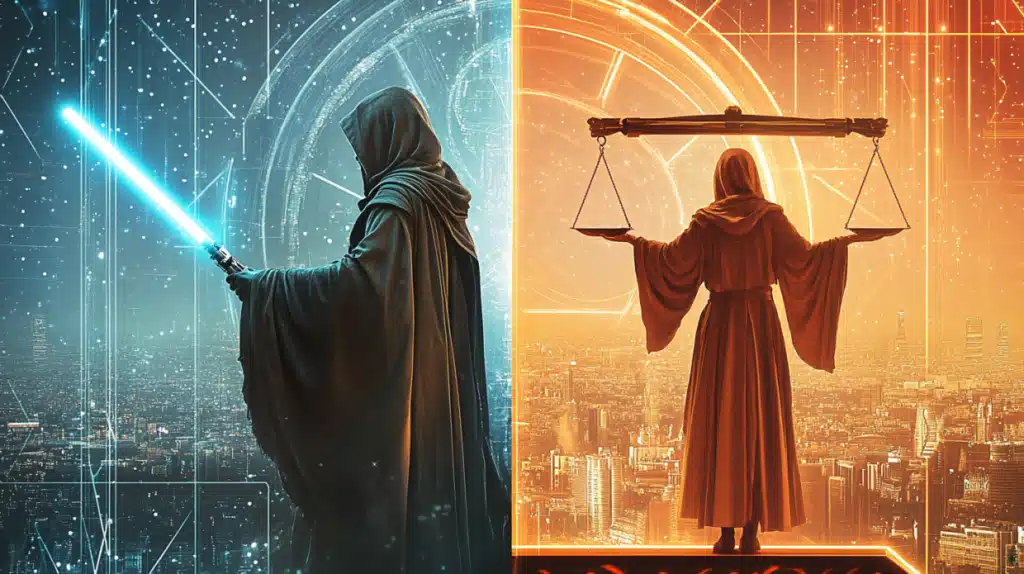
Rewriting the Narrative Around Jihad
Let’s also address the Bantha in the room: the word jihad has been hijacked (no pun intended) by media portrayals and misinformation. It’s often misunderstood as violent or extreme, when in reality it encompasses peace, discipline, struggle, and moral responsibility.
Framing jihad through the lens of Star Wars isn’t about sanitizing it—it’s about reclaiming its true meaning. The kind of jihad that’s about facing your fears, resisting tyranny, and working toward justice with humility and purpose.
Just like the Rebel Alliance.
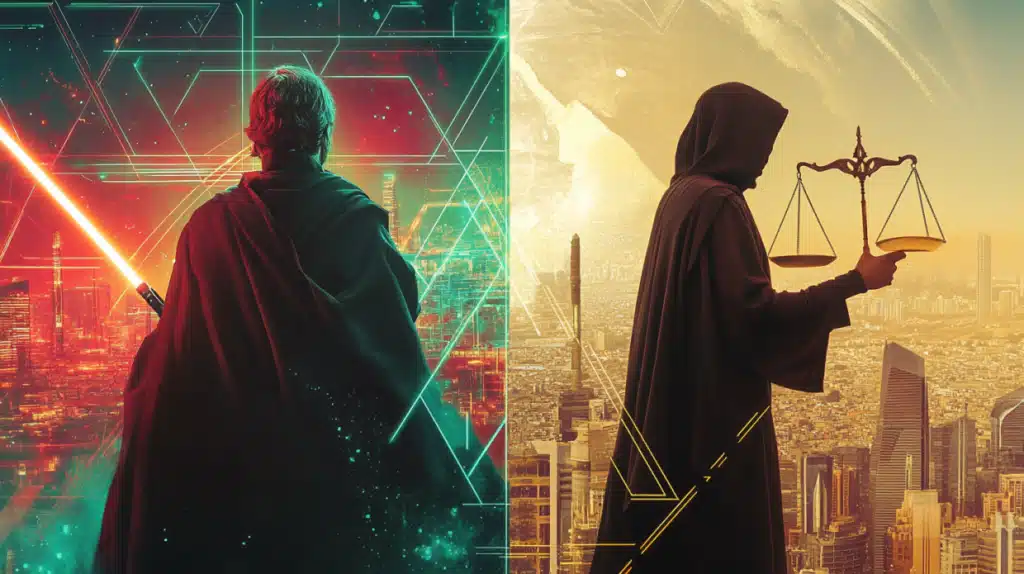
A Rebellion Worth Relating To
In the end, it’s not about who has the best lightsaber form or who can quote the Jedi Code from memory. It’s about what these stories teach us—and how they reflect deeper truths found in spiritual traditions.
Jihad, in its full and nuanced definition, is a struggle for justice, inside and out. It’s the fight to stay true, even when darkness rises. And if that doesn’t sound like something pulled straight from a Star Wars script, nothing does.
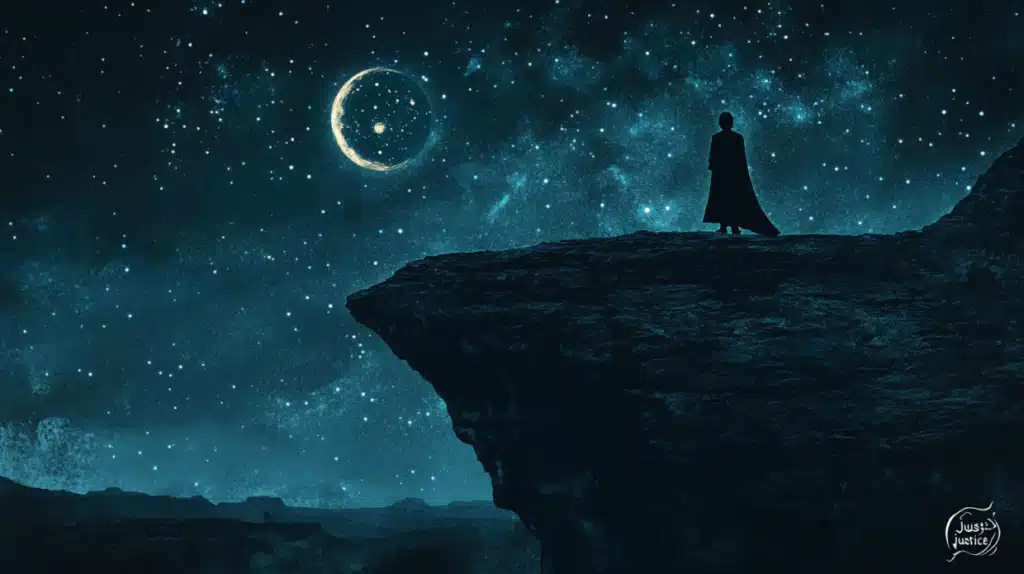
Conclusion: One Galaxy, Shared Values
The battle between the Rebel Alliance and the Empire is fictional. The struggle against oppression is not. Islamic teachings on jihad remind us that justice, patience, and personal integrity are not optional—they’re essential.
When viewed through this lens, Star Wars becomes more than a space opera. It becomes a reflection of the very real and very human journey toward freedom and balance—within ourselves, and in the world around us.
Because sometimes, resisting the Empire… is the most spiritual thing you can do.


